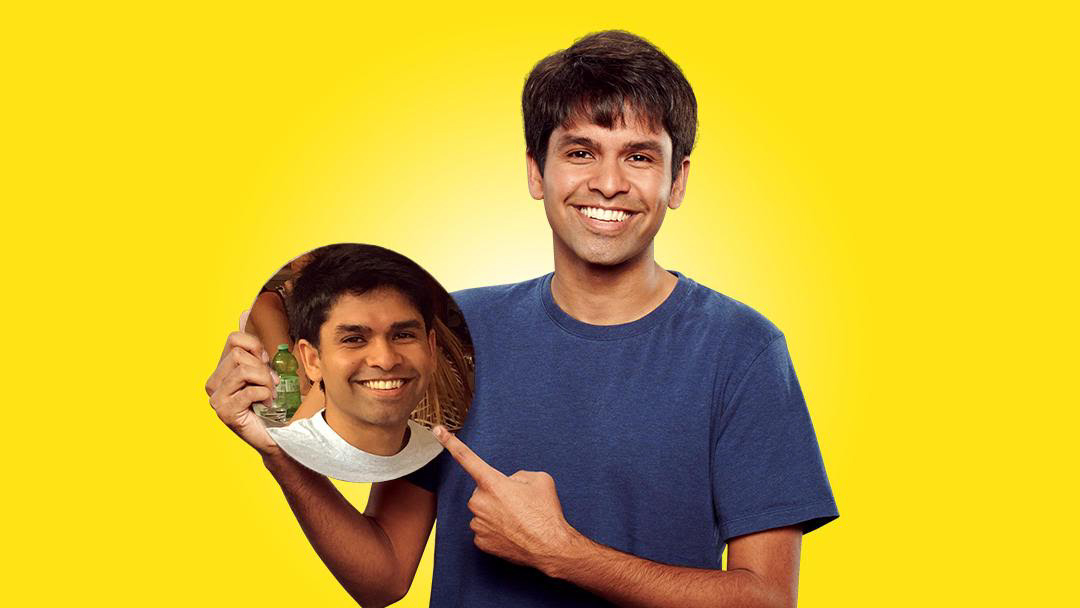Q&A: UCLA alum reflects on social media after reality TV show experience

Alumnus Shubham Goel was the runner-up on the Netflix show “The Circle,” which released throughout January. The show follows people creating profiles on an app, interacting with one another to eventually become the highest-rated person through forging bonds with the other contestants. (Courtesy of Chelsea Donsker)
By Eli Countryman
Jan. 27, 2020 11:03 p.m.
Shubham Goel hated social media. Now he has over 240,000 Instagram followers.
The alumnus’ shift in perspective – and popularity – came after competing in “The Circle,” a reality show Netflix released throughout January. Contestants create profiles on an exclusive platform named The Circle, uploading photos and messaging each other in an attempt to forge bonds and emerge as the highest-rated player at the end of the game. As the show’s runner-up, Goel came close to winning the $100,000 prize but ultimately lost out to his new friend Joey Sasso. But Goel said Instagram’s group chat feature helps him keep in contact with the people he competed with and soon befriended.
Goel spoke with Daily Bruin’s Eli Countryman about how the show shifted his views on popular social apps, his bid for governor of California and the real-life connections he made from a virtual reality show.
[Related: Randall Park reflects on how his time at UCLA shaped his career in acting, writing]
Daily Bruin: What enticed you to join a reality show revolving around a social media app?
Shubham Goel: I had pretty passionate views on social media. I thought there were a lot of bad things happening with it, but the concept for the show was so refreshing – you have people from different walks of life communicating through a digital interface – and I just thought that’s so reflective of the world we live in. I wanted to see how someone like me with my views would do on a show like this, and I thought it would be an incredible experience.
DB: Since you came into the show having only posted on Instagram very sparsely, how did “The Circle” change your social media views and habits?
SG: I came into “The Circle” thinking social media was an entity that was doing a lot of harm, but I definitely grew from the show in that sense. There’s a lot of positives to social media – you can raise awareness for charities, you can build communities, you can reach out further than before. There’s definitely addiction still, and all the academic reports are saying it’s bad for our mental health. It’s good and bad, but I’ve definitely seen a lot more good of it from the show.
DB: What did a typical day look like while filming the show?
SG: In “The Circle,” they never told us what time it was, so we were relying on our human clocks. They would wake us up pretty early – maybe 7 or 8 a.m. – and you get ready like you usually do, but then there’s activities all the time. There’s ratings, there’s games, you’re talking to people, you’re immersed in the game all the time. Honestly, some days were so fast-paced, where a new person would come in and we’d have ratings that day. Most of the time, the blockings were at night, (and it got) to the point where we were conditioned to be scared of night. It felt like each day was very long, but it was fulfilling.
[Related: Ian Somerhalder talks sinking teeth into new Netflix show, return to vampire world]
DB: You also briefly mentioned in “The Circle” that you ran for governor in 2018, and although that didn’t quite pan out, what motivated you to do so?
SG: I was born and raised in California, and I thought, being part of the public education system, UCLA and with my work experience, there were a lot of valuable ideas and insight. I thought I could bring a platform to areas that weren’t really being focused on (and that) it would be a great experience to run, learn the inner workings and see the process (of government).
I wanted to create a public database of health records for health care companies in California, so we could use (artificial intelligence) to predict a patient’s risk for medical situations … and it would cut health care costs long term. Another thing I thought is, with the Board of Regents that governs University of California campuses, I thought it would be better for representation if the students got to elect them instead of them just being appointed by the governor.
DB: How did it feel starting off in last place after the first round of voting and then to come second place by the end of the show?
SG: This is a once-in-a-lifetime opportunity, so to get there and you’re (in) eighth place – and this game hasn’t happened before besides in the (United Kingdom) – it’s an awful feeling because you worked so hard to get to this position, … but I wasn’t surprised. It was the lowest point in the game, but to get “influencer” back-to-back-to-back and to get second in the game, I felt so grateful. It was a testament to how hard I fought in the game, and the bonds I built with people were just so genuine.


